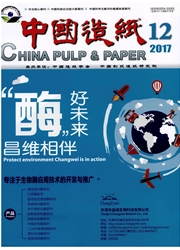

 中文摘要:
中文摘要:
目前,国内旅游文化研究已进入了瓶颈阶段。尽管有近40部与旅游文化相关的著作和教材以及大量学术论文,但人们在各种意义上使用"旅游文化"这一词汇,旅游文化的内涵与外延仍模糊不定。文章在追溯国内外旅游文化研究成果的基础上,从文化的发生层面来界定和框限旅游文化,并在内涵、特性、功能层面上对旅游文化与一般文化进行比较分析,进而指出未来的旅游文化研究可以运用文化人类学传统民族志方法来获取第一手资料。同时,文章旨在反思国内旅游文化研究的概念误区,并尝试以文化人类学视角来廓清旅游文化的外延,将旅游文化视为文化生产与再生产的结果,为旅游文化内涵的明确化、具体化做抛砖引玉的前期思考。
 英文摘要:
英文摘要:
The notion of "Tourism Culture" was first proposed by Chinese scholars in the middle of 1980s. Since then, many scholars have discussed the definition of the notion with various new theories. However, without clearly defining the denotation and connotation of the term, these studies have not clearly identified the concept of "Tourism Culture". In the meantime, many colleges in China have established courses on "Tourism Culture Study" for their students. To support the teaching, there are nearly forty textbooks on "tourism culture studies" used by these colleges. Without clear and standardized definition, these textbooks have diverse interpretations of the terminology and applications of tourism culture. Some text books even confuse "Tourism Culture" with cultural tourism resources, though the two actually have different implications. The study on "Tourism Culture" in China has stayed the same over the years. Recent studies have seldom surpassed those of the 1990s and some related case studies have shown their poverty in obscuring our understanding because of the absurd notion of "Tourism Culture". We owe the weakness of " Tourism Culture" studies of China to the lack of interdisciplinary perspectives and enough case studies. We believe that the introduction of a cultural anthropological perspective would help to solve these problems. From an anthropological perspective, we re-define the concept of " Tourism Culture". Based on the newly-defined conception, we then compare "Tourism Culture" with general culture in content, nature and function we think that "Tourism Culture" can be one of the research objects of cultural anthropology. More importantly, ethnography as the main method of cultural anthropology gives strong and solid support for studying the cultural phenomena of tourism. Based on observed and measured phenomena and knowledge from participant observation rather than from theoretical discussion, the research method provides firsthand material with evident and
 同期刊论文项目
同期刊论文项目
 同项目期刊论文
同项目期刊论文
 期刊信息
期刊信息
